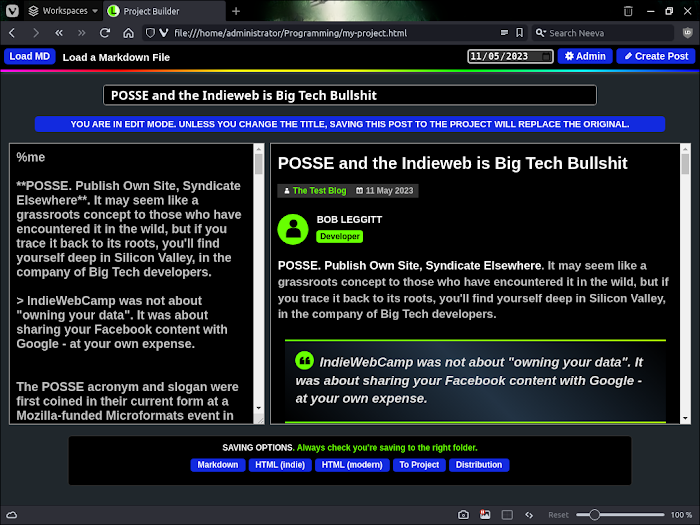Pre-Released as Free Software on the AGPL, Lit.OTG could herald a new type of fightback against a surveillance industry that doesn't know when to stop.
Our trust, hope and optimism strategy has failed. It's time those door-slamming gatekeepers had a taste of their own medicine. The ingredients? One browser, one offline app, one firewall…

The 2020s. Where the Web's entire infrastructure is under Silicon Valley's capture. Where every new "privacy tool" sits perched, by design, over an arterial data flow, breathlessly sucking in the same data-tornado as Big Tech, while its providers pretend they're not selling the spoils to the usual suspects.
There's a limit to the number of times you can watch the same bullshitters pull the same strokes before you start taking your digital welfare into your own hands. And in this environment, there's only one genuine way to stay clear of the surveillance machine. Cut the cord. Work offline.



